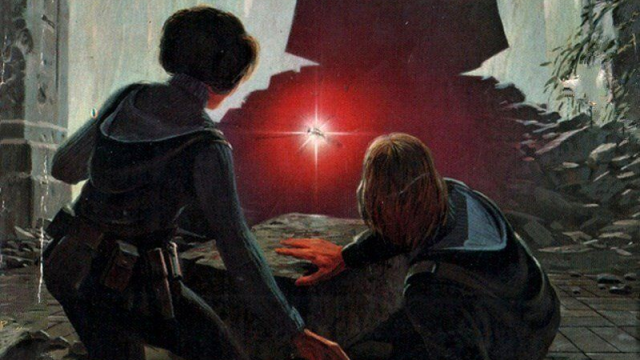Late last year, Alan Dean Foster — the novelist who wrote the first Star Wars novels, the ghost-written novelization of A New Hope and its direct sequel, Splinter of the Mind’s Eye — went public with his struggles to negotiate a royalty contract for his work since Disney took ownership of Lucasfilm. Although Foster’s fight is nearing an end, more writers are asking the company to honour contracts for studios they’ve purchased.
The Guardian reports that several authors have joined forces with the Science Fiction and Fantasy Writers of America and several other writing guilds to create the “DisneyMustPay Joint Taskforce,” so named for the Twitter hashtag that formed when Foster’s plight went public in November 2019. Among them: Neil Gaiman, Chuck Wendig (who himself has written several Star Wars books for Disney), Tess Gerritsen, and Mary Robinette Kowal.
The issue with Foster’s work was that, as the author claimed, Disney was no longer honouring royalties contracts the writer had received for decades from his work on Star Wars and Alien novelisations when the megacorporation acquired Lucasfilm and then 20th Century Fox in 2012 and 2019, respectively — despite the fact that his work was still being reprinted and sold in various forms. Since going public with his request for royalties, Foster made ground in coming to an amicable decision with Disney. “The irritating imbroglio with Disney, which you may have read about, is moving rapidly toward a mutually agreeable conclusion. A formal statement will be forthcoming,” Foster wrote in early April on his official website. A follow-up remark released recently simply adds “The issue with Disney regarding back royalties has been resolved. Further news relating to this matter to be released shortly to the public.”
The SFWA acknowledges in its press release announcing the task force that Foster’s case may be resolved. However, the group has been approached by multiple writers across licensed novels and tie-in comics — licenses like Star Wars, Buffy the Vampire Slayer and Angel, Indiana Jones, Spider-Man, and the Alien and Predator franchises — who all believe that royalty negotiations for work on those franchises prior to Disney’s acquisition of them have been terminated. The task force says someone who previously wrote Buffy comics while the property was licensed to Dark Horse — which produced them since 1998 — contacted Disney after the rights were removed from Dark Horse and given to Boom Studios post-Fox-acquisition. “When one Buffy author contacted Boom about missing royalties, they were told that ‘royalties don’t transfer,’” the statement added.
“The #DisneyMustPay Joint Task Force is in making sure writers’ working conditions are fair and safe, but individual negotiations are, rightly, between the authors, their agents, and the rights holder. Hence, the Disney Task Force is looking at structural and systemic concerns,” the release continues. “One of those concerns is identifying the authors whose royalty payments may have been missed as a result of acquisition integration. Working with the task force would have streamlined identifying those authors for Disney — since we have current contact information for our various members — and Disney knows when acquisitions happened and for which properties.”
As part of its campaign, the SFWA and the task force are asking writers who believe they have a right to royalties for prior work on franchises now owned by Disney (of which there are a lot these days) to reach out via the group’s official website. But Disney’s purported lack of cooperation — and its decision to resolve the very public situation with Foster privately; no official word has been released by the company yet despite Foster’s own comments that statements would be forthcoming — speaks to the complicated situation that comes with a studio as large as it is acquiring further studios on its quest to become a dominating force of capital in popular culture.
For years now, Disney has reaped the financial gain of its stewardship of the likes of Star Wars and the Marvel Comics universe. It should, at the very least, be willing to help some of the people who helped bring those universes to life in new mediums get their dues, especially in a world where the company is still profiting off of sales of that work.
